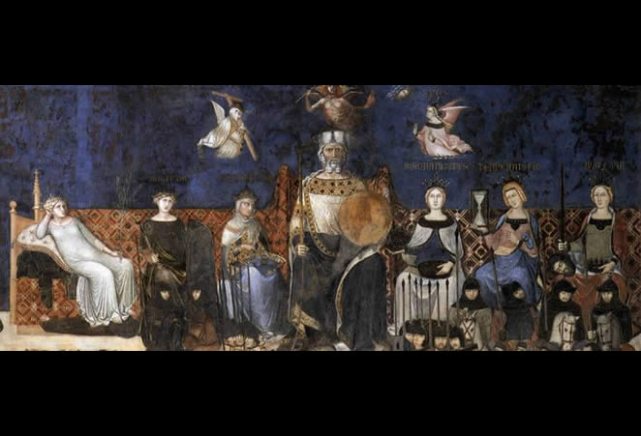Holiness through hope, patience and holiness
A proposal for Advent
Fr Navarro of the Institute of the Incarnate Word writes:
We can always take advantage of the Liturgical Seasons to practice some specific virtues. I will propose a brief consideration of patience, holiness and hope as the virtues to practice during Advent so we can rejoice with a clean and renewed heart this coming Christmas.
Saint Thomas Aquinas reminds us that the moral virtues are directed to the good, inasmuch as they safeguard the good of reason against the impulse of the passions. Sorrow is a strong passion that goes against the good of reason1, therefore there is need of a virtue to counteract the effects of sorrow which go against reason. And that is what patience does. Saint Augustine says (De Patientia ii): “A man’s patience it is whereby he bears evil with an equal mind,” i.e. without being disturbed by sorrow, “lest he abandons with an unequal mind the goods whereby he may advance to better things.”
Saint Thomas then argues to show how patience is a virtue. (Summa Theologiae, 2 2 136 1). He says that “patience safeguards the mind from being overcome by sorrow” (ad 3), and it will be present in heaven not by bearing things but by enjoying the goods to which we had aspired by suffering (ad 1). This attitude goes well with the spirit of Advent: patience helps to handle the sorrows of everyday life or any difficult circumstances we may find ourselves immersed in, at the same time that we focus on the hope and expectation of the Lord, whose presence will be renewed at the Christmas celebration, which is a celebration of joy.
The second virtue to consider is charity, but we will approach it from the perspective of perfection, that is, holiness. Aquinas asks if we can be perfect in this life (Summa Theologiae 2 2 184 2). The first part of his answer is that “the Divine law does not prescribe the impossible. Yet it prescribes perfection according to Matthew 5:48, “Be you . . . perfect, as also your heavenly Father is perfect.” Therefore, we can be perfect in this life. Then he speaks in the core of the article of three types of perfection: an absolute perfection which is not possible to any creature, but is competent to God alone; the second, belongs to the affective faculty, which always actually tends to God as much as it possibly can, but such perfection is not possible in this life (as wayfarers), but we shall have it in heaven; and the third, refers to the removal of obstacles to the movement of love towards God, of which Saint Augustine says (QQ. LXXXIII, qu. 36) that “carnal desire is the bane of charity; to have no carnal desires is the perfection of charity.” This perfection can be had in this life in two ways:
First, by the removal from our affections of all that is contrary to charity, such as mortal sin. There can be no charity apart from this perfection, wherefore it is necessary for salvation.
Secondly, by the removal from our affections not only of whatever is contrary to charity but also of whatever hinders the mind’s affections from tending wholly to God. Charity is possible apart from this perfection, for instance in those who are beginners and in those who are proficient.
The reply to the third objection says that in the love of our neighbor, as in the love of God we may observe a twofold perfection: one without which charity is impossible, and consisting in one’s having in one’s affections nothing that is contrary to the love of one’s neighbour (as explained above); and another without which it is possible to have charity. The latter perfection may be considered in three ways:
First, as to the extent of love, through a person loving not only the friends and acquaintances but also strangers and even enemies. Saint Augustine says (Enchiridion lxxiii) that this is a mark of the perfect children of God.
Secondly, as to the intensity of love, which is shown by the things which are despised for the neighbor’s sake, through despising not only external goods for the sake of neighbor, but also bodily hardships and even death, according to John 15: 13, “Greater love than this no man hath, that a man lay down his life for his friends.”
Thirdly, as to the effect of love, so that we will surrender not only temporal but also spiritual goods and even ourselves, for our neighbor’s sake, according to the words of the Apostle (2 Corinthians 12:15), “But I most gladly will spend and be spent myself for your souls.”
Is there a better way to embrace the sacrifices of Advent than by a heart full of charity so that we welcome Christ in our neighbour before we welcome Christ himself at Christmas? I am sure that the Lord, who gave up his life for the love of us, who became one of us by assuming even a human body, will reward our sacrifices on behalf of others in need, and I am even more certain that He will not be outdone by us in generosity! The third or intermediate coming of Christ –paraphrasing Saint Bernard- between the first (Christmas) and the second (Last) will fill our hearts with grace and love. And perfect love is nothing else than holiness.
Finally, the third virtue of Advent is hope. Aquinas ponders if eternal happiness is the proper object of hope (Summa Theologiae, 2 2 17 2). Hope attains God by leaning on His help in order to obtain the hoped for good. But the good which we ought to hope for from God properly is the infinite good, which is proportionate to the power of our divine helper since it belongs to an infinite power to lead anyone to an infinite good. Such a good is eternal life, which consists in the enjoyment of God Himself. For we should hope from Him for nothing less than Himself. The conclusion of the argumentation is that the proper and principal object of hope is eternal happiness.
Saint Thomas completes the argument replying to the third objection: ‘To him that longs for something great, all lesser things seem small; wherefore to him that hopes for eternal happiness, nothing else appears arduous, as compared with that hope; although, as compared with the capability of the man who hopes, other things besides may be arduous to him, so that he may have hope for such things in reference to its principal object.’
A bit of logic, philosophical and theological argumentations do not hurt anyone. The Angelic Doctor can lead us into the depths of these considerations not only through study but also through prayer. In a sense, we anticipate eternal happiness (the object of hope) by practising this virtue. Advent is a time of hope. Let us embrace this wonderful liturgical season in a spirit of patience, with a renewed desire for holiness (or perfection) through charity, that is, love of God and neighbour; and finally, with the hope of attaining eternal happiness, a spiritual gift we need to work for.
I wish you all a fruitful Advent. May the Lord reward your patience, grant you perfection, and increase your hope.
1 See, for instance, 2 Corinthians 7: 10, “The sorrow of the world worketh death”, and Sirach 30: 25, “Sadness hath killed many, and there is no profit in it.”
Below: The Good Government of Siena by Ambrogio Lorenzetti; there is a Ruler sitting on a throne wearing black and white, which represents colors of the crest of Siena. To his left and right there are six personifications of virtue, represented as Peace, Bravery, Prudence, Generosity, Modesty and Justice. Thus, it represents virtues and principles needed for a good city government. Above the Ruler, there are another three pendulous figures, representing theological virtues: Mercy, Faith and Hope.
We can pray through this Advent season and by meditation on holiness, the rulers of our country might be guided similarly.[DC]

